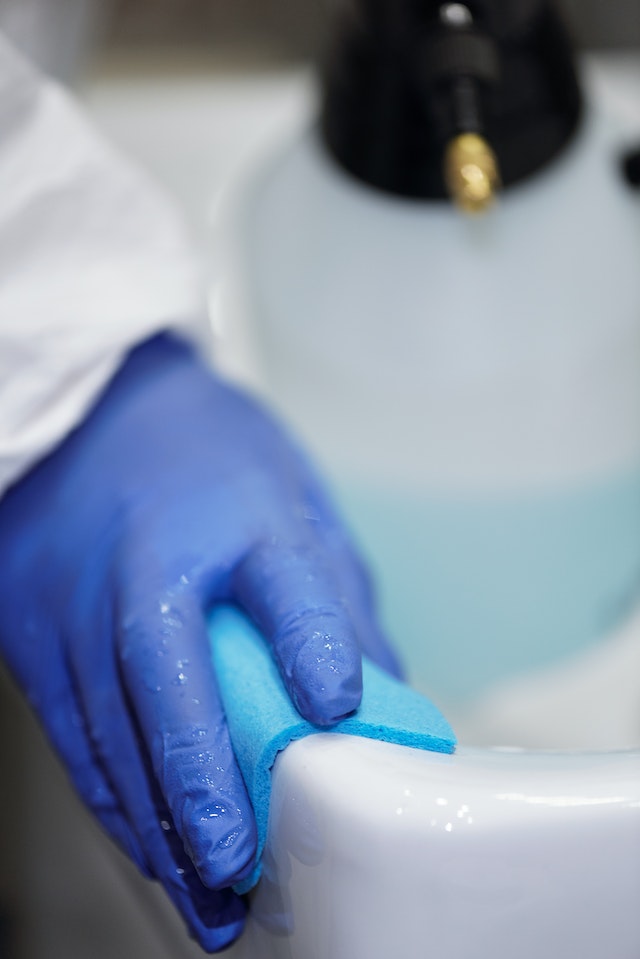Is hydrogen peroxide or rubbing alcohol? Which is better for disinfection?
Both rubbing alcohol and hydrogen peroxide are standard household products frequently used for disinfection. However, despite their apparent similarity in function, these substances differ in chemical composition and efficacy. Hydrogen peroxide is a clear liquid frequently used as an antiseptic and disinfectant. It is made up of water and oxygen, and when it encounters organic matter like viruses and bacteria, it gives off oxygen. Oxidation is the term for this process, and it kills viruses and bacteria by breaking down their cell walls.
On the other hand, rubbing alcohol is a liquid typically used as a cleaner and disinfectant. It dissolves the membranes of bacteria and viruses, denatures proteins, and contains isopropyl alcohol, water, and other additives. By destroying the proteins and cell walls of the microorganisms, this process ultimately causes their death.
Therefore, although both rubbing alcohol and hydrogen peroxide can be utilized for disinfection, their methods of operation and strengths are distinct. Because it is less likely to damage surfaces and is less corrosive, hydrogen peroxide is generally regarded as a milder disinfectant. In addition, because it does not sting or irritate the skin like rubbing alcohol, it is also considered safer for wounds and skin.
Rubbing alcohol, then again, is a more powerful sanitizer and is more successful at dispensing with microbes and microscopic organisms. However, it is also more likely to cause damage to the skin’s surface and can be irritating and stinging to wounds and skin.
Advantages of rubbing alcohol
Rubbing alcohol, or isopropyl alcohol, is a flexible substance that offers various advantages in different settings. Due to its disinfectant properties, it is a popular choice for cleaning and sterilizing tools, equipment, and surfaces. Additionally, it is frequently utilized as a solvent in various sectors, including electronics, the automotive industry, and healthcare.
Rubbing alcohol’s ability to kill germs and bacteria is one of its most important advantages. It is a potent disinfectant that destroys harmful microorganisms on surfaces like doorknobs, bathroom fixtures, and countertops. Additionally, due to its high alcohol content, it is an efficient sanitizer that can quickly and easily clean bacteria-prone areas like bathrooms and kitchens.
Notwithstanding its sanitizer properties, rubbing alcohol can be utilized as a dissolvable. It is famous for cleaning electronics and automotive parts because it dissolves grease and oils. It is additionally regularly used in medical care to clean clinical instruments and eliminate glues from the skin.
One more advantage of rubbing alcohol liquor is its capacity to cool the skin. When applied topically, it can assist with lessening fever and relieve minor consumes and bug chomps. It is also famous for massage therapy due to its cooling properties, which can help alleviate muscle tension and soreness.
Alcohol can also be used to clean household items with a rubbing motion. It can clean windows and mirrors, remove stains from clothing, and clean upholstery, among other things. Due to its adaptability, it is frequently chosen as an all-purpose cleaning agent.
One of the main advantages of rubbing liquor is its moderation and accessibility. It is easy to find in most supermarkets and drug stores, making it an affordable and accessible choice for people looking for a cleaner or disinfectant. Also, its adequacy and flexibility make it well known for individual and expert use.
Conclusively, there are a variety of uses for rubbing alcohol. Its sanitizer properties make it a powerful device for cleaning and disinfecting surfaces. In contrast, the electronics and automotive industries favor it because it dissolves grease and oils. It is also famous for massage therapy, soothing minor burns, and treating insect bites due to its cooling properties. Lastly, it is accessible and cost-effective, making it an affordable choice for anyone looking for a versatile disinfectant and cleaning agent.
Benefits of hydrogen peroxide
Hydrogen peroxide is a potent and adaptable chemical compound with numerous advantages and applications. In addition, it has countless other uses, including bleaching, disinfecting, and antiseptic. In this piece, we’ll look at some of the benefits of hydrogen peroxide and how it can be used in various applications.
The ability of hydrogen peroxide to eradicate viruses and bacteria is one of its primary advantages. Additionally, it is a potent disinfectant that can be utilized to sanitize equipment and surfaces in hospitals, laboratories, and other settings where cleanliness is paramount. Further, minor cuts and wounds are frequently treated with hydrogen peroxide due to their ability to prevent infection and heal wounds.
Moving further, the ability of hydrogen peroxide to whiten and brighten teeth is yet another advantage. Many individuals use hydrogen peroxide as a characteristic teeth-brightening arrangement, as it can assist with eliminating stains and staining brought about by espresso, tea, and different substances. Notwithstanding, it is crucial to use hydrogen peroxide with some restraint and under the direction of a dental specialist, as it very well may be hurtful whenever abused.
Additionally, hydrogen peroxide can be a natural alternative to chemical cleaners. It is environmentally friendly and non-toxic, making it an excellent option for reducing chemical exposure. Hydrogen peroxide can also remove stains from clothing and upholstery and clean floors, countertops, and other surfaces.
Hydrogen peroxide can be used for much more than cleaning and disinfecting. It can be utilized, for instance, to treat ear infections by assisting in removing excess wax and debris from the ear canal. Hydrogen peroxide can likewise be used as a mouthwash to help renew breath and advance oral well-being.
Hydrogen peroxide is likewise generally utilized in farming, as it can assist with forestalling the development of unsafe microorganisms and growths on crops. Moreover, it may be used well to sanitize soil and treat seeds and seedlings before planting. In fish tanks and aquariums, hydrogen peroxide can also be used to oxygenate the water, which can help aquatic life stay healthy and happy.
Hydrogen peroxide is a beneficial chemical compound that can be used for various purposes. For example, hydrogen peroxide can be a great option to clean your home, whiten your teeth, disinfect surfaces, or promote oral or aquatic health. However, hydrogen peroxide can be harmful if misused, so it is essential to use it correctly and under the supervision of a medical professional or other qualified individual.
Hydrogen peroxide is a valuable tool for anyone who wants to improve their health and well-being because of its numerous uses. Isopropyl alcohol, or rubbing alcohol, is a versatile substance with multiple applications. Due to its disinfectant properties, it is a popular choice for cleaning and sterilizing tools, equipment, and surfaces. Additionally, it is frequently utilized as a solvent in various sectors, including electronics, the automotive industry, and healthcare.
Is it safe to combine hydrogen peroxide and rubbing alcohol?
If you mix chemicals or substances without knowing how to, you could hurt yourself or put yourself in danger. Before incorporating any chemicals or substances, it is essential to consult a physician or poison control center. Security ought to continuously be the primary concern while managing possibly destructive materials.
The typical household disinfectants hydrogen peroxide and rubbing alcohol can eliminate viruses and bacteria. However, mixing these two substances is dangerous due to the possibility of a hazardous chemical reaction. Blending rubbing alcohol and hydrogen peroxide can make a profoundly dangerous combination that can cause extreme consumption, visual deficiency, and respiratory issues. As a result, it’s critical to keep these chemicals separate and only use them as directed. If you want to sanitize surfaces or articles, it’s ideal to utilize each compound and adhere to the directions cautiously. For example, hydrogen peroxide can disinfect wounds and rub alcohol to clean surfaces.
To summarize, combining hydrogen peroxide and rubbing alcohol poses a risk, and cautiously handling potentially hazardous substances is essential. Please look for professional guidance before trying to blend synthetics or substances.
Conclusion
Although the disinfecting properties of hydrogen peroxide and rubbing alcohol may appear comparable, their chemical composition and efficacy are distinct. Concerning peroxide as opposed to rubbing alcohol, there are tremendous contrasts. Hydrogen peroxide is a milder antiseptic for wound care and surface disinfection. Hydrogen peroxide can likewise be utilized as a mouthwash or to brighten teeth. Rubbing alcohol, then again, is a more potent disinfectant regularly used to clean and sanitize the skin before infusions or other operations. Alcohol can be used to clean surfaces but not on wounds because it can hurt the skin. Eventually, the decision between hydrogen peroxide and rubbing alcohol will rely upon the particular use case and the degree of sterilization required. Always pay attention to the directions and use these products safely and responsibly. It is essential to understand these differences to use these substances safely and effectively in your home and personal care routines.



